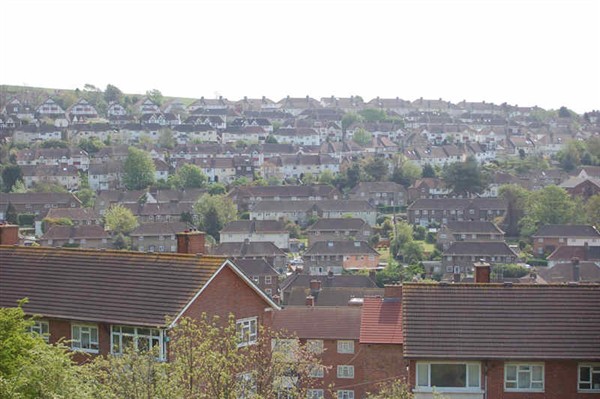While Brighton and Hove City Council has been criticised for sending homeless people to Newhaven and Eastbourne, Adur District Council has been sending others to Brighton and Hove.
The council – which serves Southwick, Shoreham, Sompting and Lancing – is increasingly seeking temporary accommodation out of the area to meet demand, a freedom of information request has shown.
Out-of-area placements – housing outside the district – reached a six-year high of 75 households in the second quarter of this year.
The furthest anyone has been placed has been in Northamptonshire while others have been placed in Medway, Kent.
Adur District Council said that it had also placed people in need of temporary accommodation in Brighton, Hove and Eastbourne as well as Worthing, Crawley, Horsham, Arun and Chichester.
In March 2015, only one household was placed outside of the district but this figure stood at 51 in March this year.
In most cases, the majority of households placed in temporary housing have been pregnant families or families with children.
In June this year, 87 temporary housing placements were made, with 75 of those households placed outside Adur and just 12 within the district.
The council’s temporary accommodation policy states that a shortage of affordable housing and rising rental costs – factors outside its control – mean that an increasing number of households will be placed out of area.
Labour opposition leader Lee Cowen said that placing families outside the district had a “worrying human cost”.
He said: “The Labour group are aware of the increasing number of households being placed outside the district for emergency accommodation and this is not in the best interests of those families.
“The human cost of this policy is worrying. Families in need of emergency housing are already in at least one vulnerable group, having experienced domestic violence, family breakdown or economic insecurity, including housing, food, energy and fuel poverty.
“Locating these families far away from their established location increases the disruption and alienation these families experience at a time which is already saturated with personal challenges.”

Mr Cowen said that one resident from his Mash Barn ward in Lancing was put up in the Travelodge at Gatwick when she was 30 weeks’ pregnant.
He said that this proved difficult for the woman who had to pay to park each evening as well as paying for fuel to travel to and from Lancing.
Mr Cowen said that the resident – who was now permanently housed – didn’t have cooking facilities and had been “moved from pillar to post”.
Adur District Council said that it “always takes the needs of people into consideration” when they placing them out of the district.
The council said: “The housing team remains in contact with anyone living in temporary accommodation outside of Adur and if they want to return we work with them to find a suitable home.”
The council added that “the majority” of people placed out of the area were living in West Sussex or Brighton and Hove and that anyone living outside of Sussex had been “moved at their own request”.
They noted that other local authorities should be notified when a resident was placed in temporary accommodation outside of Adur – a legal requirement of all councils using the practice.
The issue was raised during a full council meeting in July, when Labour councillor Catherine Arnold highlighted a £129,000 underspend on emergency and temporary accommodation in Adur’s budget for 2020-21.
She said: “I really would hope that the sourcing of cheaper temporary accommodation to achieve this is not because we’re looking further afield, because we know what separating families can do when you need your support networks.”
Another Labour councillor, Sharon Sluman, said that out-of-district accommodation could disrupt families and support networks.
She said: “Remote relocation removes people from their support networks when they need them the most and increases the cost and time required to attend work and school at a time when their resources are increasingly limited.
“Often, families are placed in emergency accommodation with no cooking facilities, meaning families are forced into further poverty and poor health by means of having to purchase fast food.
“Further to this, those parents are often penalised by the accommodation managers for such things as eating on the beds when the reality is they have no other place to eat.”
To view the Adur data, click here.










